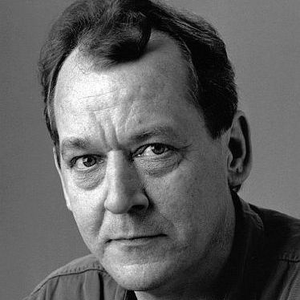
| Trackimage | Playbut | Trackname | Playbut | Trackname |
|---|---|---|---|---|
| 82458093 | Play | II. Adagio | 00:00 Tools | |
| 82458094 | Play | I. Allegro | 00:00 Tools | |
| 82458095 | Play | III. Luminoso | 00:00 Tools | |
| 82458096 | Play | I. Largo leggiero | 00:00 Tools | |
| 82458097 | Play | II. Scherzo: Presto volante | 00:00 Tools | |
| 82458098 | Play | III. Variations: Allegro | 00:00 Tools | |
| 82458099 | Play | Ricercar for 2 Pianos | 00:00 Tools | |
| 82458102 | Play | Mitternachtsmusik (Midnight Music) | 00:00 Tools | |
| 82458100 | Play | 7 Short Pieces | 00:00 Tools | |
| 82458101 | Play | Piano Pieces I-IV | 00:00 Tools | |
| 82458103 | Play | Sonata for 2 Pianos | 00:00 Tools | |
| 82458105 | Play | Violin Concerto: II. Adagio | 00:00 Tools | |
| 82458106 | Play | Violin Concerto: I. Allegro | 00:00 Tools | |
| 82458104 | Play | 13 Bagatelles | 00:00 Tools | |
| 82458108 | Play | Symphony No. 3: I. Largo leggiero | 00:00 Tools | |
| 82458110 | Play | Symphony No. 3: II. Scherzo: Presto volante | 00:00 Tools | |
| 82458112 | Play | Symphony No. 3: III. Luminoso | 00:00 Tools | |
| 82458111 | Play | Violin Concerto: III. Variations: Allegro | 00:00 Tools | |
| 82458113 | Play | 2 Etudes for Clarinet Solo (version for bass clarinet): No. 1. Alla Maniera di Carmen, con una cerca eleganza | 00:00 Tools | |
| 82458107 | Play | Ricercar | 00:00 Tools | |
| 90232818 | Play | 2 Etudes for Clarinet Solo (version for bass clarinet): No. 2. Alla maniera di Op. 17, No. 4 di Chopin | 00:00 Tools | |
| 82458109 | Play | 13 Bagatellen | 00:00 Tools | |
| 82458114 | Play | Symphony No. 3 I. Largo leggiero | 00:00 Tools | |
| 82458115 | Play | Verso Parsifal | 00:00 Tools |

-
- 2,514
- plays
-
- 825
- listners
-
- 2514
- top track count
Ulrich Leyendecker (born 1946 in Wuppertal) is a German composer of classical music. His output consists mainly of symphonies, concertos, chamber and instrumental music. Leyendecker studied composition with Ingo Schmitt (1962-5) and Rudolf Petzold (1965-70), and piano with Günter Ludwig. In 1971 he became a lecturer at the Hamburg Academy for Music and Performing Arts, and in 1976 he was appointed Professor of Composition and Theory at the Hamburg Music and Theatre Hochschule. Since 1994 he has been Professor of Composition at the State Hochschule for Music and the Performing Arts of Heidelberg-Mannheim. Leyendecker's music, although not serial, is largely atonal, but often with subtle hints of tonality. He employs regular time signatures in his pieces, yet does not sound so for he utilizes carefully calculated and complex rhythms. His music often contains novel sonic architectures, while still managing to express powerful emotions directly to the listener. He often employs classical abstract forms such as the symphony and concerto form while avoiding operas and ballets. Read more on Last.fm. User-contributed text is available under the Creative Commons By-SA License; additional terms may apply.